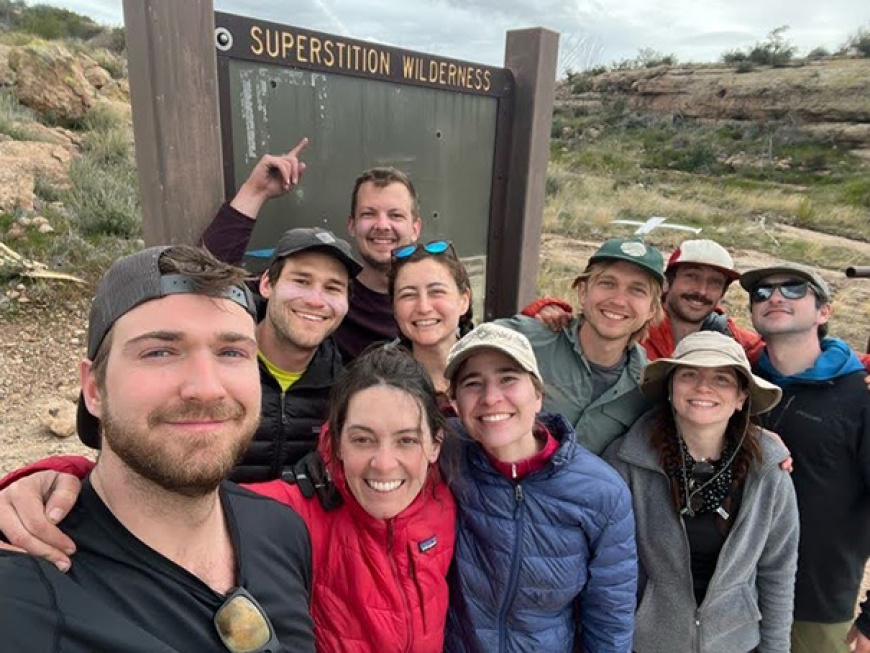
 back to all news
back to all news
Meet the future of Environmental Policy and Planning: Joel Weltzien (MS ’23)

Joel Weltzien (MS ’23) was in his last year studying cultural anthropology at the University of Montana when he realized he wanted to focus on conservation work. His love of the natural world and the threat of climate change were huge motivators for him to change careers, and he spent the next five years in a variety of conservation-minded positions, including serving as an intern in Senator Jon Tester’s Washington, D.C., office.
Eventually, Weltzien realized that to do conservation work long-term, it would be beneficial to earn an environmental master’s degree, especially one that provided a solid foundation in policy, policy analysis, and hard science.
“I was offered a full-time position for reasonable pay at an organization I was working at and decided to turn it to down,” said Weltzien, who was drawn to the University of Michigan School for Environment and Sustainability (SEAS) because of its Environmental Policy and Planning specialization and the opportunity to study with SEAS Professor Steve Yaffee.
Weltzien also liked that SEAS is one of six universities to offer the prestigious Wyss Scholars program, which provides tuition support and other benefits to future conservation leaders in the United States.
As a 2022 Wyss Scholar, Weltzien said the program’s financial support has been “life-changing,” in that it will enable him to graduate from SEAS without “significant debt.” It also connected him to renowned individuals in the conservation field and gave him the chance to intern at The Wilderness Society (TWS) last summer.
“It’s been a wonderful experience meeting other people from the sister schools who have the Wyss Scholars program, as well as from the huge network of alumni scholars who are doing really cool things in the field,” Weltzien said.
At SEAS, Weltzien said he enjoyed the academics and the ability to “customize your degree to be whatever you want.” He rounded out his education by taking classes outside of his specialization, including law and business courses.
With advising from Yaffee, he also helped to develop a master’s project with TWS focused on irrecoverable carbon, “which is above-ground carbon that if released via deforestation or wildfire, wouldn’t be sequestered in a meaningful timeline to combat climate change,” Weltzien explained. He and his teammates helped TWS identify and develop approaches for the increased protection and management of these high-carbon areas in the U.S.
Before coming to SEAS, Weltzien—who is from a small town in Montana—spent two years working on electoral politics, issue advocacy, and landscape planning for the Montana Wilderness Association and the Wild Montana Action Fund, which he found to be tremendously helpful in gaining skills and figuring out his own interests. He encourages prospective students to pursue similar real-world experience before attending SEAS.
Weltzien’s other advice for prospective students? “Be really thoughtful and intentional about why you want to pursue an environmental degree and how it plugs into your long-term career goals, especially since graduate school is so expensive,” he said.
After graduation, Weltzien will be moving to California with his wife, Anisa, who recently was accepted to law school at the University of California, Berkeley. Weltzien is looking for jobs focused on public land policy in the Bay Area.

